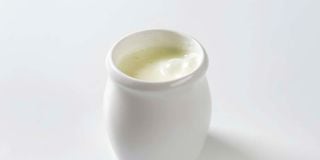Superfood that builds healthy digestive system

Kefir has many similarities to yogurt, but it contains more friendly bacteria.
What you need to know:
- High in nutrients and probiotics — good bacteria that help keep you healthy — kefir is beneficial for digestion and gut health.
- The fermented milk drink cultured from kefir grains is a rich source of calcium, protein and vitamin B.
BY EMMA NGUTU
All your organs, including your gut, play a role in your general health. But the gut plays a particularly important role — it helps to regulate your immune system, synthesise vitamins, break down nutrients and eliminate toxins. If your gut is unhealthy, these essential functions are likely to be impaired. As a result, you may experience digestive issues such as bloating, cramping, gas and diarrhoea. You’re also likely to experience poor nutrient absorption, which can lead to a wide range of health issues.
Diabetes, heart disease and certain types of cancer are linked to low levels of good bacteria. Therefore, if you can maintain a healthy gut, you’re likely to reduce your risk of these diseases. A healthy gut can also help you maintain healthy weight as it improves metabolism.
What should you eat to build a healthy gut?
Kefir
High in nutrients and probiotics — good bacteria that help keep you healthy — kefir is beneficial for digestion and gut health. The fermented milk drink cultured from kefir grains is a rich source of calcium, protein and vitamin B. You can also use it as a natural remedy for digestive issues like acid reflux and irritable bowel syndrome. Its origins date back to the early medieval period in Scandinavian countries. Its modern popularity began in the late 20th century when scientific research revealed the benefits of consuming fermented milk products. Kefir has many similarities to yogurt, but it contains more friendly bacteria.
Good for your digestion
Kefir contains probiotics, which improve your digestion and overall gut health. Research shows that consuming probiotics can help reduce abdominal pain, bloating, gas, among other digestive issues. Prebiotics are compounds that promote the growth of good bacteria in your gut. This means that kefir can help to get your digestion back on track.
Immunity
Your immune system does a remarkable job of defending you against disease-causing microorganisms. With a weak immune system, you’re more likely to catch a cold or flu, experience frequent allergies and bee stings, and even suffer from autoimmune issues. Kefir can boost your immunity, thanks in part to its probiotic content. Kefir also contains minerals such as iron and zinc, both of which have anti-inflammatory properties, that help the body to fight against illnesses and infections.
Rich in calcium and vitamin D
Calcium is crucial for bone health, and it can also help to reduce the risk of certain types of cancers such as prostate cancer. Kefir is a rich source of calcium with nearly six grammes in every cup. This is significant since the recommended daily intake of calcium is 1,000 mg for adults under 50 years and 1,200 mg for those above 50. A large portion of the calcium found in kefir comes from its milk sources. This makes it a great alternative to other calcium-rich foods such as milk and cheese. Kefir is also rich in vitamin D.
Proven to fight inflammation
Kefir reduces inflammation in the body, the root cause of many diseases such as heart disease, cancer and arthritis. Kefir is rich in magnesium, calcium, zinc and manganese, which have anti-inflammatory properties. They reduce inflammation in the body. Magnesium in particular has been shown to effectively reduce inflammation, particularly in the digestive system. This mineral is also useful for lowering blood pressure and minimising the risk of heart attack and stroke. .
It is easy to incorporate kefir into any diet, and it comes in many different flavours. For centuries, people have made kefir using kefir grains and cow’s milk. It is also possible to make it with goat or sheep milk. Kefir grains resemble tiny cauliflower florets. Manufacturers add the grains to the milk to ferment it, then they remove them. You can buy kefir from most leading supermarkets, or prepare it at home — all you need is to buy the culture grains from dealers who propagate it locally.
Emma Ngutu is a trained nutritionist, marketing professional and founder of International Centre for Youth Wellness . email [email protected]



